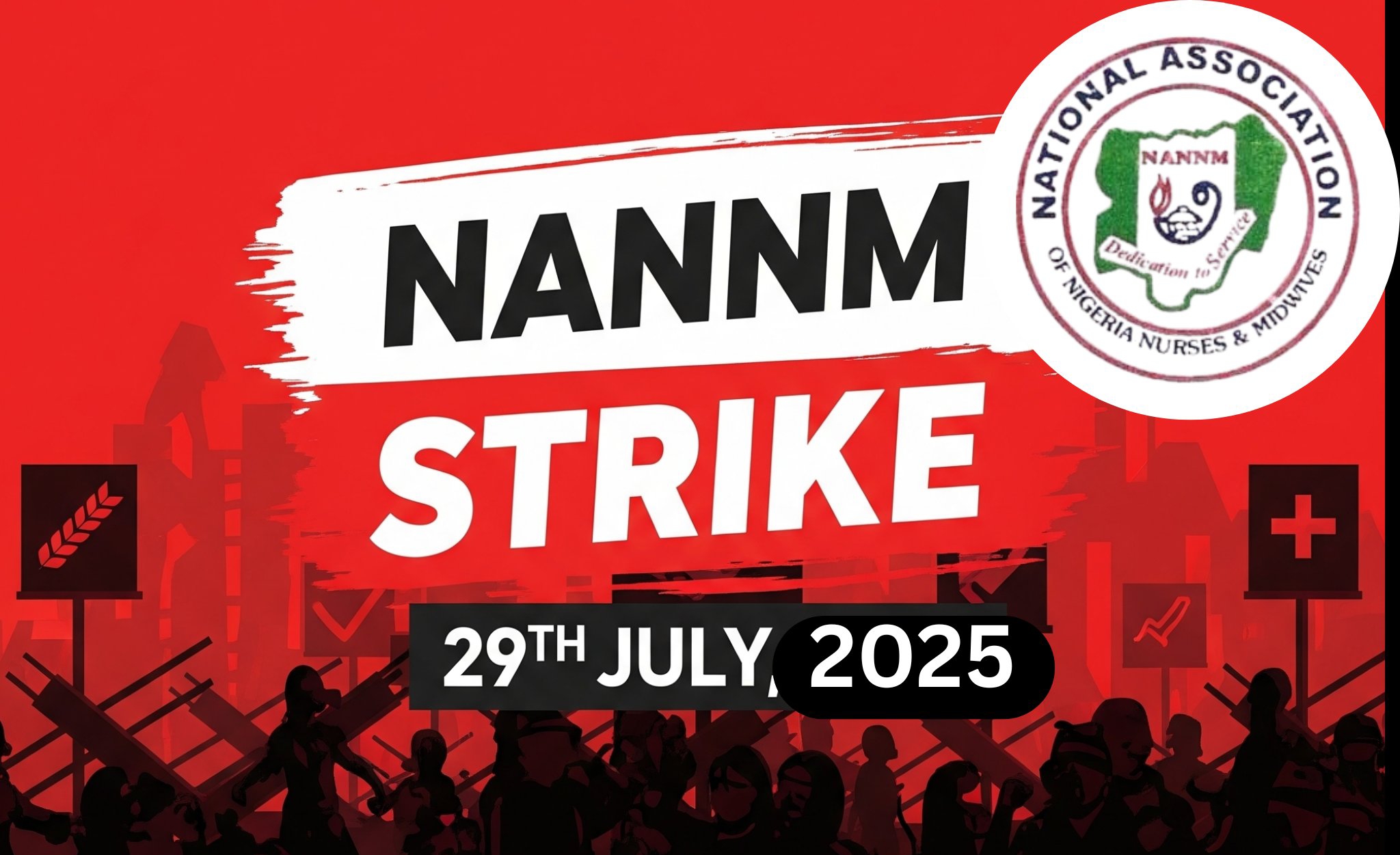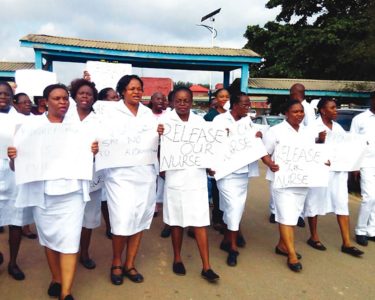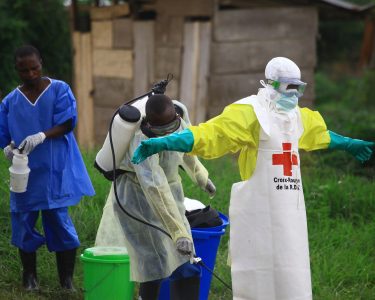Nigerian nurses begin nationwide strike
Withdraw services over poor welfare and stalled negotiations
Summary
- NANNM declares seven-day warning strike across 74 federal hospitals after unmet demands for better pay and working conditions
- Government’s failure to reverse controversial circular and resolve long-standing grievances prompts action
- Healthcare services face paralysis as no emergency or skeletal services permitted during the strike
Abuja, Nigeria – The National Association of Nigerian Nurses and Midwives (NANNM), through its Federal Health Institutions (FHI) sector, commenced a nationwide seven-day warning strike at midnight on 30 July 2025. The action follows the Federal Government’s failure to meet demands for improved welfare, fair allowances, and safer working conditions.
The strike, which affects all 74 federal health institutions in Nigeria, including teaching hospitals, federal medical centres, specialist hospitals, and primary healthcare centres, comes after the expiration of a 15-day ultimatum issued on 14 July. NANNM’s demands include a reversal of a 27 June circular from the National Salaries, Income and Wages Commission (NSIWC), which nurses say offered inadequate remuneration.
Among the union’s key grievances are poor shift and call duty allowances, understaffing, unsafe work environments, and lack of professional recognition. They are also advocating for a separate salary structure, 30% shift allowance (up from the current 6.8–8.6%), mass recruitment, the establishment of a Nursing Department in the Federal Ministry of Health, and inclusion in policy-making bodies.
Negotiations with the Federal Ministry of Labour broke down on 29 July, with no resolution reached. The Federal Ministry of Health also failed to engage meaningfully with the union after the ultimatum. NANNM National Chairman Morakinyo Rilwan stressed that the strike was a last resort, marking the first nationwide strike by nurses in over four decades. He warned that if demands are not met by the end of the seven-day warning strike, a 21-day ultimatum and indefinite strike will follow.
The impact of the strike is already being felt, with major disruptions expected across federal hospitals. Nurses have vowed not to provide even emergency or skeletal services during the strike, raising concerns about patient care in an already strained health system.
Adding to the crisis, the Nigerian Medical Association (NMA) issued a 21-day ultimatum on 27 July, threatening a nationwide strike by doctors in response to systemic neglect and underfunding in the sector.







